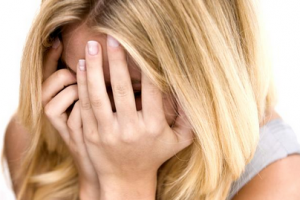Drug Addiction: Shame vs. Guilt
It’s a common story, you stop going to therapy appointments or picking up your suboxone from the pharmacist. You aren’t returning calls or following through with the daily routines you established for a healthy recovery. And, you know the reason why: you relapsed.
So often, when people relapse, they withdraw and continue using. But, why? You can have a single slip without abandoning recovery entirely, so why do people? The answers are shame and guilt.
Shame and guilt aren’t the same thing, but they can be managed with similar techniques. If you are undergoing suboxone assisted therapy and you feel like you might be relapsing, get in touch with SuboxoneDrugRehabs.com at 888-646-0865 (Who Answers?) to connect you with resources and treatment that may help you break the cycle.
Shame vs. Guilt

An opiate addict will likely feel both shame and guilt.
It may seem natural to lump the feelings of shame and guilt together into one big pile because they are both negative feelings associated with your opiate addiction. But the two actually are different from one another. An archived manual from the National Institute on Drug Abuse (NIDA) clarifies that difference. “Shame refers to negative beliefs about oneself; for example, one is a weak, worthless, or deficient person. Guilt refers to the belief that one has engaged in wrongful behavior, such as stealing to obtain money for drugs.
In essence, shame is about how you feel about yourself and guilt is about how you feel about your behavior. Of the two, shame is the more damaging to yourself and the more difficult from which to heal; although, you will experience both even while in your active addiction.
The Cycle
Most people feel personal shame because they became an addict and they may not believe themselves worthy or deserving of recovery. This can be traced to the incorrect views most people have on addiction.
NIDA observes: “Many people do not understand why or how other people become addicted to drugs. It is often mistakenly assumed that drug abusers lack moral principles or willpower and that they could stop using drugs simply by choosing to change their behavior. In reality, drug addiction is a complex disease, and quitting takes more than good intentions or a strong will.”
You may incorrectly believe that your addiction is the product of your own failings and this will cause you shame.
You will also feel guilt, potentially for the following reasons:
- Engaging in immoral or illegal behaviors—like theft, prostitution, and burglary—to get drugs or money for drugs
- Emotionally injuring your family and/or friends
- Physically injuring your family and/or friends
- Financially injuring your family and/or friends
- Losing your job, home, and/or family
When the shame and guilt build up, continuing to indulge in your addictive behavior may be the only way for you to escape from these feelings, even if the escape is temporary. You might also begin to use again because your bad feelings make you feel like you should be punished. When you begin to do this, you will find yourself in a downward spiral where you are using to get rid of the feelings caused by using. That is a recipe for relapse and for disaster.
How Does Suboxone Treatment Help Me Want to Overcome Opiate Addiction?
Overcoming Guilt & Shame
Suboxone will help you deal with withdrawals, but it will not address the emotional turmoil related to recovery. For this, you should be receiving some form of counselling.
Working with your counsellor, therapist, or sponsor, you should identify, admit to, and talk about both your shame and your guilt. Then, acknowledge the cycle that comes from giving into these feelings.
Instead develop healthy, responsible living habits that contribute to self-esteem and self-respect. Look to actions like being a responsible partner, parent, spouse, employee, and/or volunteer as ways to promote improved self-esteem.
Make amends or apologize to the people you have wronged as a way to celebrate your strength. Feel pride for doing so.
One way to take account of the bad behaviors you engaged in while using opiates is to keep a personal inventory. If done truthfully and fully, it will facilitate honesty with yourself and responsibility toward yourself and toward others. This will foster self-acceptance.
For more information about suboxone rehab, therapy, and personal inventory making, in addition to overall recovery, contact SuboxoneDrugRehabs.com at 888-646-0865 (Who Answers?) . Don’t let guilt or shame make you put it off.





